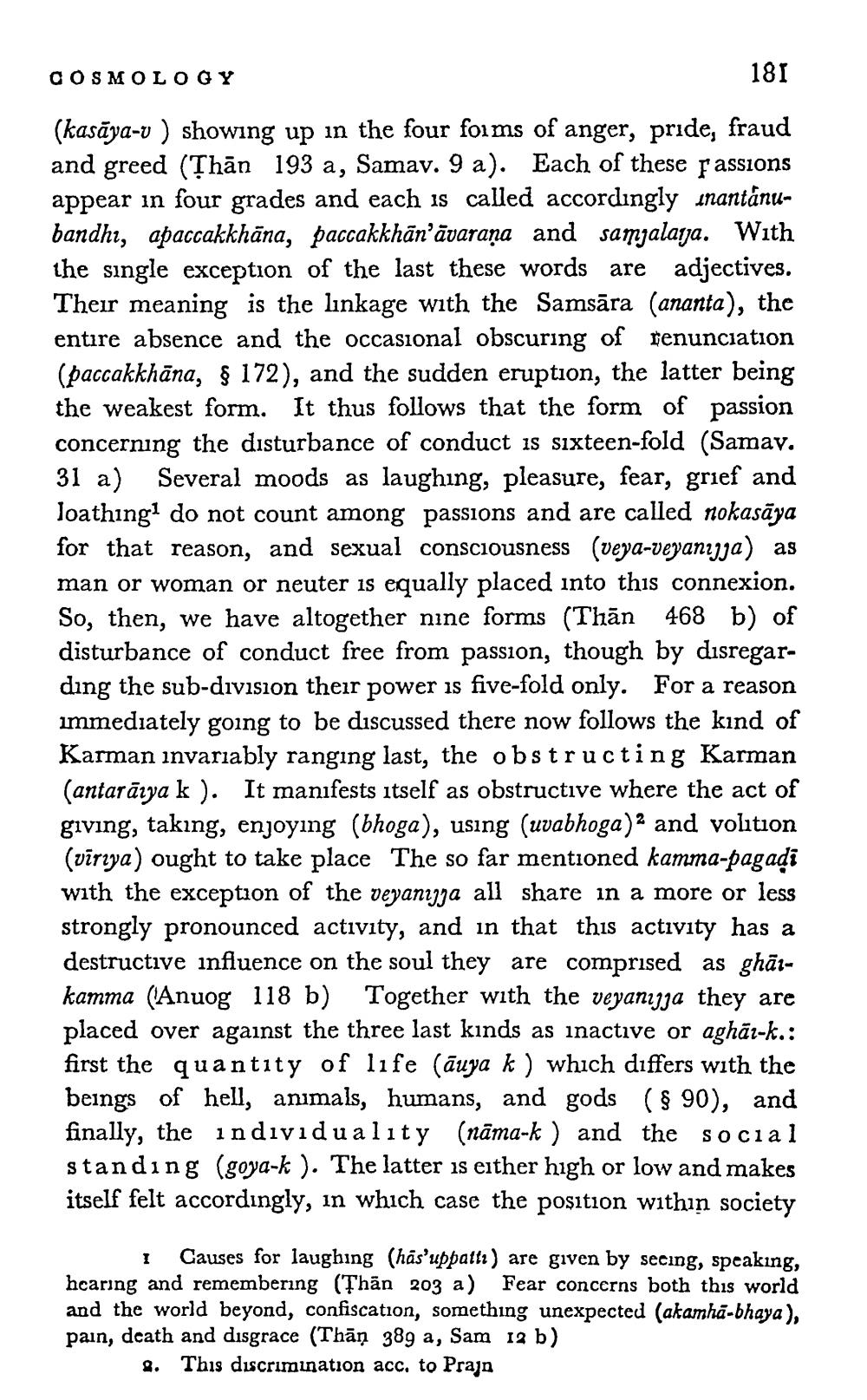________________
COSMOLOGY
181
(kasāya-v ) showing up in the four forms of anger, pride, fraud and greed (Thān 193 a, Samav. 9 a). Each of these passions appear in four grades and each is called accordingly inantanubandhi, apaccakkhāna, paccakkhān’āvarana and sampalatja. With the single exception of the last these words are adjectives. Their meaning is the linkage with the Samsāra (ananta), the entire absence and the occasional obscuring of renunciation (paccakkhāna, § 172), and the sudden eruption, the latter being the weakest form. It thus follows that the form of passion concerning the disturbance of conduct is sixteen-fold (Samav. 31 a) Several moods as laughing, pleasure, fear, grief and loathing? do not count among passions and are called nokasāya for that reason, and sexual consciousness (veya-veyanıyja) as man or woman or neuter is equally placed into this connexion. So, then, we have altogether nine forms (Thān 468 b) of disturbance of conduct free from passion, though by disregarding the sub-division their power is five-fold only. For a reason immediately going to be discussed there now follows the kind of Karman invariably ranging last, the obstructing Karman (antarāıya k ). It manifests itself as obstructive where the act of giving, taking, enjoying (bhoga), using (uvabhoga)2 and volition (vīriya) ought to take place The so far mentioned kamma-pagadi with the exception of the veyanıya all share in a more or less strongly pronounced activity, and in that this activity has a destructive influence on the soul they are comprised as ghārkamma (Anuog 118 b) Together with the veyanızja they are placed over against the three last kinds as inactive or aghāz-k.: first the quantity of life (āuya k) which differs with the beings of hell, animals, humans, and gods ($ 90), and finally, the individuality (nāma-k ) and the social standing (goya-k ). The latter is either high or low and makes itself felt accordingly, in which case the position within society
1 Causes for laughing (has’uppattı) are given by secing, speaking, hcaring and remembering (Thân 203 a) Fear concerns both this world and the world beyond, confiscation, something unexpected (akamha-bhaya), pain, death and disgrace (Thāņ 389 a, Sam 12 b)
A. This discrimination acc. to Prajn




